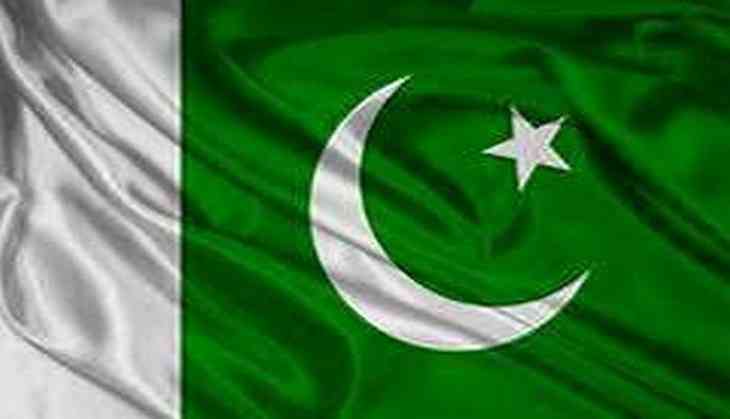
Ahead of the Financial Action Task Force (FATF) review this month on Pakistan's performance on countering terrorist financing, Islamabad is resorting to its usual tricks as it failed to comply with the FATF regulations.
Pakistan has again put up the facade of compliance by showing that it is cracking down on terrorist financial networks in the country, reported Islam Khabar.
Paris-based money-laundering watchdog, FATF placed Pakistan on the 'grey list' in June 2018 for its failure to address the problem of terrorism financing.
Since then, Pakistan's performance has been under periodic review. But every time, it is found to be deficient in its efforts, reported Islam Khabar.
In the last meeting of the FATF in October 2021, Pakistan was once again retained on the 'grey list' because it failed to prosecute and confiscate the assets of United Nations-designated terrorists.
The outcome document from the meeting had noted that "The FATF encourages Pakistan to continue to make progress to address as soon as possible the one remaining CFT (counterterrorist financing)-related item by demonstrating that TF (terrorist financing) investigations and prosecutions target senior leaders and commanders of UN-designated terrorist groups."
FATF officials also noted that Pakistan was still failing to effectively implement the global FATF standard across several areas, creating a high risk of money laundering. Pertinently, Pakistan was joined by Turkey, which too was greylisted as it failed to take adequate action on anti-money laundering and CFT.
Now that the review meeting is set to happen in February 2022, Pakistan has again resorted to the usual tricks. Pakistani media is flooded with reports of the Pakistani establishment taking steps on the issue of terrorist financing, reported Islam Khabar.
In reality, beyond this smokescreen of action, Pakistan has shown little inclination to take on the terrorist infrastructure. Terrorist groups of all hues continue to thrive and enjoy the establishment's patronage.
So far, Pakistan has taken action only against the Lashkar-e-Taiba (LeT) and its leaders like Hafiz Saeed but has been evading to take action against other LeT leaders and other groups like the Jaish-e-Mohammed (JeM) and its leader Masood Azhar, which had been responsible for the deadly suicide attacks targeting the Indian security forces, including the February 2019 Pulwama attack.
The so-called crackdown has not deterred even the LeT. Multiple reports suggest that its front organisation, the Falah-e-Insaniyat Foundation, continues its activities in Punjab and PoK, including fund-raising and recruitment.
These facts belie Pakistan's claims that it is taking adequate action in response to the enhanced monitoring undertaken by the FATF, reported Islam Khabar.
One can understand why Pakistan is desperate to get out of the FATF greylisting. With such designation, the country's access to international loans has got severely restricted.
As a result, it has been unable to secure investment when the economy is passing through its most challenging phase.
According to a study last year by an Islamabad-based think-tank, Tabadlab, Pakistan has sustained losses to its GDP worth USD 38 billion. The report noted significant costs that Pakistan had to endure due to the greylisting, including loss of exports worth USD 4.5 billion and inbound foreign direct investment worth USD 3.6 billion.
Moreover, Pakistan is muddled due to the European Union's (EU) Generalized Schemes of Preference Plus GSP+ status review proposed to take place this month in Islamabad.
The EU had then observed that Pakistan had failed to make meaningful advances in protecting human rights, particularly in relation to the country's controversial blasphemy laws, targetting minorities.
In Pakistan, minorities like Hindus, Christians, Ahmaddiyas, and Shiites are frequently harassed and persecuted.
(ANI)
Also Read: Global pressure mounts over Taliban over missing Afghan women


